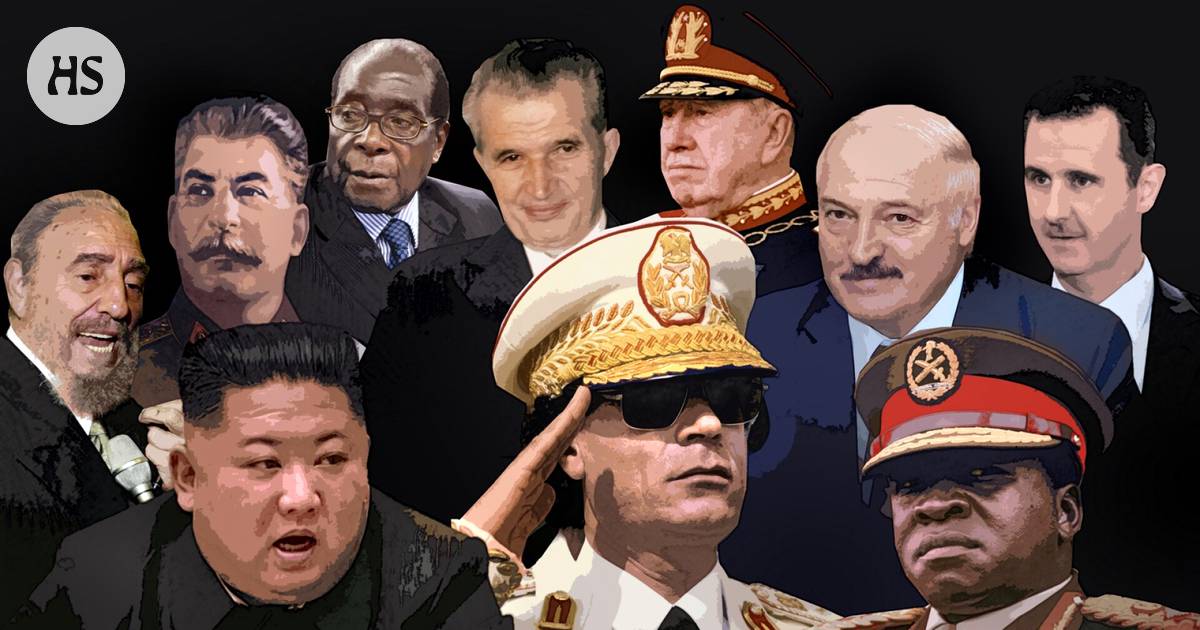When the African state of Zimbabwe became independent in 1980 after the Civil War, its first head of state Robert Mugabe seemed like a stable leader.
Mugabe had been imprisoned and tortured by the Rhodesian White Separation Authority. Still, he announced that a line will be drawn over the past and no revenge will follow. Whites were allowed to keep their farms, businesses and positions.
Prime Minister of the Separation Period Ian Smith continued in parliament in opposition to public criticism of the Mugabe regime. Mugabe himself lived quite modestly.
The world still remembers Mugabe as a cruel and unbridled dictator. Both characterizations are equally valid.
His desire for revenge, lust for power, and extravagant cult of worship collapsed Zimbabwe and kept millions of citizens in fear and distress.
Mugabe’s miserable accounts were led by the perpetual occupational disease of all dictators: paranoia. It lurks monopolies who have been isolated from the reality of everyday life in their golden cage.
Mugabe seized power at the age of 93 until he was placed under house arrest by the military, according to a British broadcaster. BBC.
He was still under house arrest that the people loved and worshiped him. Equally firmly he believed for decades that the goal of the former colonial host Britain and other Western countries was to overthrow him.
Nearly similar thoughts revolve around every long-time dictator, US psychiatric professors conclude Seth Davin Norrholm and Samuel Hunleythat are mapped the landscape of the monarchs.
Most notably, dictators are united and their paranoia are fueled by narcissism, Norrholm and Hunley emphasize.
According to scholars, the daily lives of dictators are also strongly dominated by constant fear, suspicion, and an overemphasized need to show and exercise power.
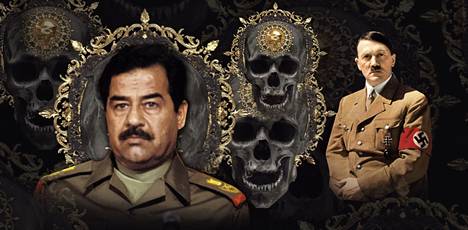
Saddam Hussein and Adolf Hitler.
Quite professors of psychology at the University of Colorado came to the same conclusion Frederick Coolidge and Daniel L. Segal when they compared the traits of Iraqi dictator Saddam Hussein and Adolf Hitler.
Their their research showed that both mass murderers were not only narcissistic but also deeply paranoid, antisocial, and sadistic. They had schizophrenic personality disorder.
Narcissistic the use of dictators and action is dictated by self-desire and the need to be admired.
They see themselves as unique superiors who have been given a special mission. They have the right to carry out their duties regardless of other people or rules.
Congolese autocracy Joseph Mobutu turned his country into a thief’s paradise when he rose to power in the 1960s.
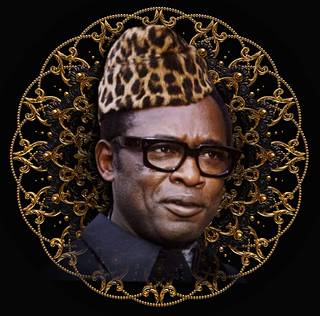
Mobutu was genuinely indignant when he was reminded in the mid-1990s that he had already seized assets worth more than five billion euros.
Mobutu protests that he barely had a tenth of it – and what was it now after 30 years of service as president of such a big country?
Dictators paranoia seem to be evolving as monopolies increasingly surround themselves with like-minded stalkers.
In the end, there is no more healthy criticism or questionable debate inside the bubble.
The stalkers nurture the dictator’s suspicions, fears, and crazy imaginations as they seek to strengthen their own position or oust their competitors.
So it was with Mugabe. In the end, only his wife and the voice of reason dared to criticize his actions Sally Mugabewhich he also believed.
When the spouse died, the president derailed. No one again damned his long-burned resentment toward the West and whites.
Even the cruelest dictators beg for admiration and approval for their actions.
However, sublime gestures turn into revenge tinged with offended pride if they are ignored or not valued.
The threshold for revenge is low, as narcissism is associated with an inability to feel compassion for other people’s feelings and needs.
In all countries of the world, there are probably psychopaths in positions of responsibility who, in theory, could be a danger to their work community and society.
However, in a functioning state governed by the rule of law, most of them perform their duties in a useful way because they do not have sufficient opportunities to turn their personality disorders into tools for their exercise of power.
If Western democracy detects too obvious signs of excesses, it will counter the danger with kicks, early retirement, or ballot boxes.
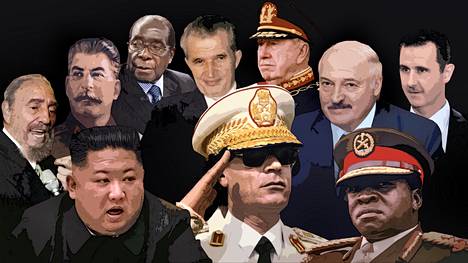
Fidel Castro, Joseph Stalin, Kim Jong-un, Robert Mugabe, Nicolae Ceausescu, Muammar Gaddafi, Augusto Pinochet, Alexander Lukashenko, Idi Amin and Bashar al-Assad.
Alone the dictator, on the other hand, has the time and space to develop his character flaw into a paranoid exercise of power, even if it threatens both its own citizens and the outside world.
“The paranoia of dictators is mostly quiet, long-lasting and moderate. They observe both their enemies and their friends, patiently search for weak points and strike when necessary, ”describes the author and philosopher. Leif Sundström in his book Unlimited Power: The Dictators of Modern Time from Hitler to Kim Jong-dreams.
A revealing sign of the acceleration of the paranoia is the flamboyant goals of the dictators – and the confessions they have given themselves.
Former non-commissioned officer seized power in Central Africa Jean-Bedel Bokassa first promoted himself to marshal, then developed for himself more than 30 magnificent titles, and finally declared himself emperor.
Ugandan raw killer Idi Amin called himself the conqueror of the British Empire and the last king of Scotland.
Mobutu changed its name Mobutu Sese Seko Nkuku Ngubendu Wa Za Banga. It is “The Almighty Warrior who, because of his tenacity and unwavering will to win, travels from conquest to conquest, sowing fire after him”.
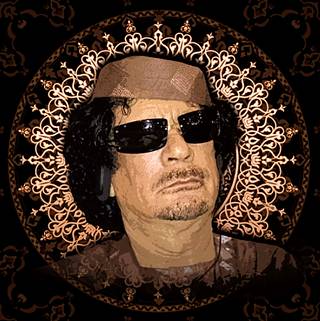
Libyan dictator Muammar Gaddafi in 2008 he invited two hundred African traditional tribal kings to watch as he was crowned “king of kings” in Africa.
Gaddafi’s dream was an African United States with a common flag, passport, money and army, Timemagazine reviews.
With the Iraqi leader Saddam Hussein there were many built using plastic surgery twin beings. Several meals from around the country were prepared for him every day.
Hussein rarely slept for consecutive nights in the same place. The taster checked the meals, another group of sheets, clothes, and those surfaces that the dictator might touch.
Second leader in the North Korean Kim Dynasty Kim Jong-il made all journeys abroad by armored train. The reason was that he suspected someone was installing a bomb on his plane, he wrote, among other things Scientific American.
For suspicion there are, of course, grounds. While almost every dictator strives to stay in power all his life, only a quarter do so.
There were good reasons to suspect bad intentions of those who had ruled Cuba for nearly 50 years Fidel Castrolla.
The U.S. Central Intelligence Agency (CIA) and the Cuban agents it recruited tried to assassinate him 638 times, according to a documentary from the British television company Channel 4. The newspaper also tells about it, for example The Guardian.
Last perhaps the most dangerous paranoia in decades was developed by Yuri Andropov, a long-time leader of the KGB in the Soviet security police.
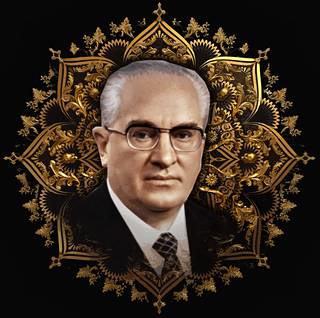
Andropov was obsessed with the idea that the United States and NATO were planning a massive surprise attack on nuclear weapons that would destroy the Soviet Union in one fell swoop. He harnessed the KGB in 1981 to search the world for evidence of this.
Few agents believed the theory, but they provided evidence similar to that requested in Moscow that further fueled Andropov’s suspicions. Fear deepened when he rose to Soviet rule in 1982.
In the fall of 1983, the United States and NATO staged a major military exercise across Western Europe that seemed to reinforce Andropov’s worst fears.
Troops practiced practices to authorize a nuclear strike.
They also used vocabulary in their posts that referred to the nuclear strike of B-52 bombers, according to documents released by the U.S. National Security Archives (NSA).
Tensions were already at their peak, as the Soviet Union had just shot down a South Korean scheduled plane and its passengers lost in its airspace.
The exercise, combined with Andropov’s suspicions, accidentally and in vain drove the superpowers to the brink of nuclear war, NSA historian concludes Nate Jones.
The magazine tells about the tensions The Atlantic and Journal of Stratecig Studies newsletter.
Hitler, Maon, Josip Stalin and Cambodian punks Pol Potin the delusions of such tyrants have known the deaths of tens of millions of people.
But even the actions of lesser dictators are causing great suffering, consuming huge amounts of money and causing unnecessary work, which is slowing down the development of states.
The ability to interpret the obsessions of dictators before they cause tragedies is of even greater importance.
The combined economy of non-democratic countries is already larger than that of the so-called free world, recalls Raimo Tyykiluoto, editor of Yle Speech. Terrible rulers – 52 dictators. Tyykiluoto has delivered a series of programs 12 dictators.
About connecting despite their character traits, it is still difficult to deduce who the paranoid dictator is emerging from, Norrholm and Hunley state – or where the head of state is otherwise progressing.
The Prime Minister of the United Kingdom Tony Blair assesses Russia’s president-elect Vladimir Putinia in 2000 as follows:
“A liberal, moderate, and pro-Western reformer,” Blair told the newspaper The Guardian by.
